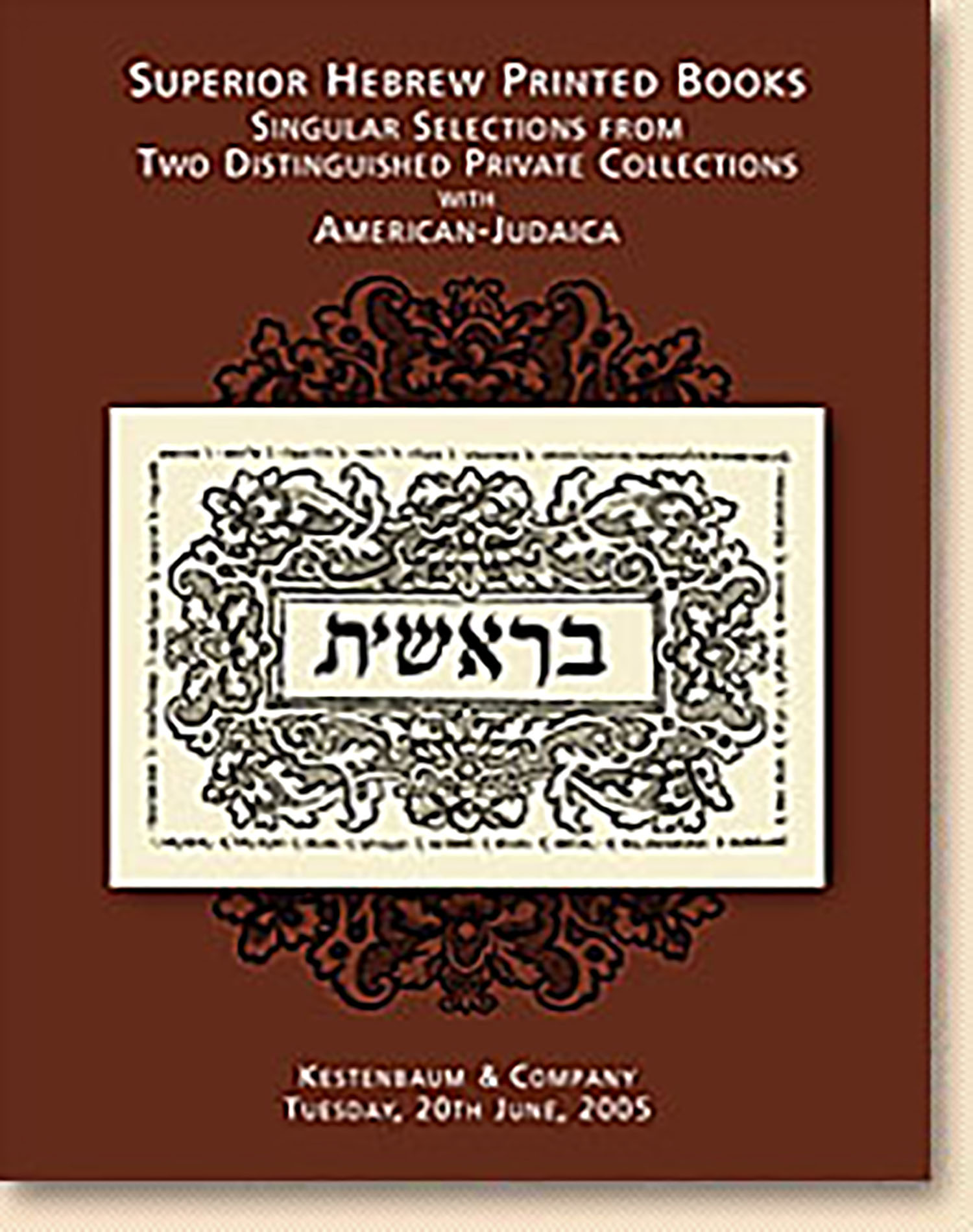Or Ado-nai [“Light of the Lord”: Philosophy]

AUCTION 29 |
Monday, June 20th,
2005 at 1:00
Superior Hebrew Printed Books: Singular Selections from Two Distingushed Private Collections with American-Judaica.
Lot 15
CRESCAS, HASDAI
Or Ado-nai [“Light of the Lord”: Philosophy]
Ferrara: Abraham Usque 1555
Est: $3,000 - $5,000
PRICE REALIZED $3,000
Hasdai Crescas (c. 1340-d.1410/11) was the disciple of the preeminent Iberian rabbinic personality of the day, R. Nissim ben Reuben of Gerona (Ra”N). It has been said that Crescas was the last outstanding original Jewish philosopher of the Middle Ages.
Or Ado-nai is one of only three surviving works by Crescas. The other two being his polemic work, Bitul Ikarei ha-Notzrim (Refutation of the Christian Principles), and his Sermon on Passover (Derashat ha-Pesah). Interestingly, these other two works contain contradictions to the magnum opus Or Ado-nai. Thus, in the Refutation, Crescas argues against positive divine attributes in order to demolish the Christian doctrine of Trinity, but in the present text he argues in favor of positive attributes, in opposition to Maimonides’ negative theology. Similarly, as regard to the theory of eternal creation: in the polemic work, Crescas employed Gersonides’ arguments against eternal creation; in the philosophic work, Crescas accepted the concept of eternal creation, refuting Gersonides’ arguments. While the medieval translator of the Refutation (from Catalan to Hebrew), Joseph ibn Shem Tov argued that these discrepancies should be accounted to the evolution of Crescas’ thought - from the earlier composition of the Or Ad-onai to the later composition of the Refutation - of late, Daniel Lasker has suggested that perhaps the Refutation does not represent Crescas’ true beliefs and is merely a ploy to demolish Christian arguments.
It has been speculated that Crescas’ negative reaction to Maimonides’ Aristotelian rationalism dates back to the waves of Jewish conversion to Christianity engendered by the murderous riots of 1391. (See R. Joseph Ya’avetz, Or ha-Chaim, Lot 64 .)
See Daniel J. Lasker, “Chasdai Crescas” in: Frank and Leaman eds., History of Jewish Philosophy(1997), pp. 399-414; EJ, Vol. V, cols. 1079-85.
R. Jacob Vilna (b. ?-d. before 1737), whose signature appears in the present copy, was without doubt the greatest kabbalist of the first part of the 18th-century. An important member of the mystic circle of R. Judah Hasid, he arrived with the latter in Eretz Israel in 1700. In Jerusalem he studied in the yeshivah of R. Abraham Rovigo. His study partner there was R. Nathan Nata Mannheim, with whom he co-authored a commentary to Meir Popper’s encyclopedia of kabbalistic keywords, Me’orei ‘Or (1709). Independently, Vilna penned notes to Tikkunei Zohar, based on the teachings of R. Isaac Luria. These notes were published in the Constantinople 1719 edition of Tikkunei Zohar. Besides his expertise in Kabbalah, R. Jacob Vilna was reputed to know all the books of Maimonides by heart. Eventually, he became one of the authoritative leaders of the Aschkenazic community of Eretz Israel, first in Jerusalem, and later in Safed. See A. Yaari, Sheluchei Eretz Israel (1977), pp. 337-340, 520-521, 850; A.L. Frumkin and E. Rivlin, Toldoth Chachmei Yerushalayim (1928), pp. 85-86
